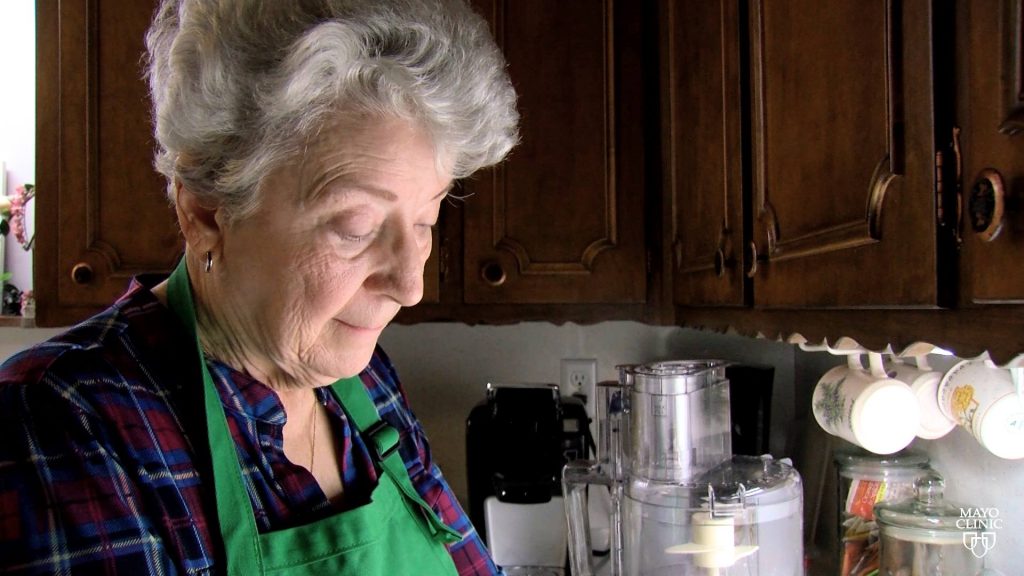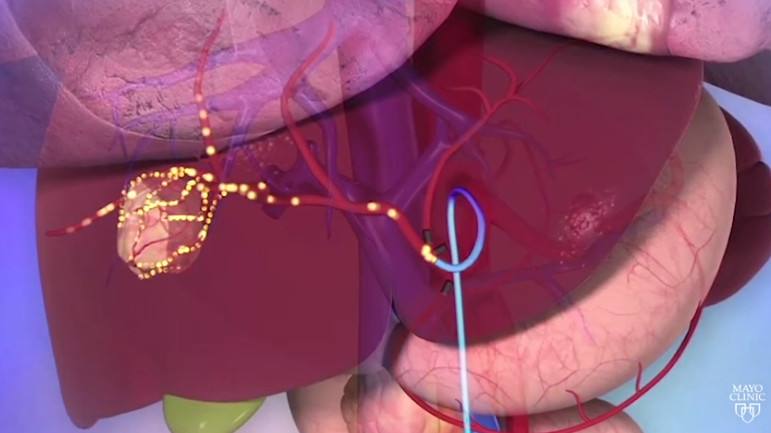
Sharon Silverman loves to travel. But after doctors in her hometown of Pensacola, Florida, diagnosed her with hepatocellular carcinoma and told her there were no treatment options, Sharon knew she had to take one more trip. Her destination: Mayo Clinic — where a unique radiation procedure opened the door to future adventures.
Reporter DeeDee Stiepan shares Sharon's story.
Watch: New treatment options for those with liver cancer
Journalists: Broadcast-quality video pkg (3:16) is in the downloads at the end of the post.
Please "Courtesy: Mayo Clinic News Network." Read the script.
Sharon Silverman has been on many adventures in her 76 years.
"My passion has always been travel. I’ve been traveling since I was 17 years old."
Her passport is full of stamps and her photo albums filled with images of her world travels.
But when she was diagnosed with an autoimmune condition where her body began attacking its own bile ducts, the future was uncertain.
"Eventually I developed cancer, hepatocellular carcinoma," says the mother of two.
Hepatocellular carcinoma is the most common type of liver cancer. Annually, it is estimated to affect more than half a million people worldwide and is among the top causes of cancer deaths.
Sharon’s adventures were cut short when doctors in Pensacola, Florida, told her to get her affairs in order.
"Because of the nature of my liver disease, even if they were able to operate and remove those cancers, I was told that really would not stop the problem, that those cancers will come back," Sharon recalls.
"I was referred to an oncological surgeon who said, 'You will never be transplanted. You will not meet the criteria.'"
Sharon knew it was time for another opinion.
In 2017, Sharon drove six hours to Jacksonville, Florida, to meet with Dr. Beau Toskich, an interventional radiologist and oncologist, to learn more about a minimally invasive treatment for liver cancer. But first, doctors had to look at the liver's blood supply.
"It's a very rigorous study where we perform little, tiny CT scans of each individual blood vessel in that patient's liver," explains Dr. Toskich. "Then we put together a puzzle where we can decide which vessels need to be treated and which ones can be spared."
Dr. Toskich determined Sharon was a candidate for radio embolization, a minimally invasive treatment, where tiny glass beads filled with a radioactive isotope called yttrium-90, are injected into the blood supply of the tumor. Over time, the tumor dies but the healthy part of the liver remains.

"He offered me hope with yttrium-90," says Sharon, who underwent the procedure shortly thereafter.
Dr. Toskich was pleased with the results. "When we saw her in follow-up, we saw that at least, per her MRIs, that the tumor had shrunk in its entirety and there was no residual active blood supply to the tumor."
If the tumor continued to respond to the yttrium-90, also called Y-90, a transplant was a possibility.
Over the next year, it did, until eventually it was within transplant criteria.
"It's only because of Dr. Toskich and his miraculous Y-90 that I was able to come back to the point where I was eligible," says Sharon.
Two weeks after being listed for a transplant, Sharon got the call.
"It was a real surprise when at 7:00 in the morning the transplant person called and said, 'Get in the car and come!' And I said, 'What? I don’t have — I don’t have a suitcase packed!'"
On Nov. 14, 2018, Sharon received a new liver.
"I feel like a Mayo miracle. I owe my life to Mayo," she says.
After a follow-up in November 2019, doctors cleared Sharon to travel. To celebrate her new lease on life, Sharon planned an adventure with several friends.
Then the COVID-19 pandemic struck and Sharon's travel plans were put on hold.
Although staying home means staying safe, Sharon's eager to hit the road again in 2021. A trip to Boston and Canada is in the works.
"There are four of us and we all have traveled together before," she says. "It's going to be a blast."
For the safety of its patients, staff and visitors, Mayo Clinic has strict masking policies in place. Anyone shown without a mask in the video was recorded prior to COVID-19 or recorded in an area not designated for patient care, where social distancing and other safety protocols were followed.







